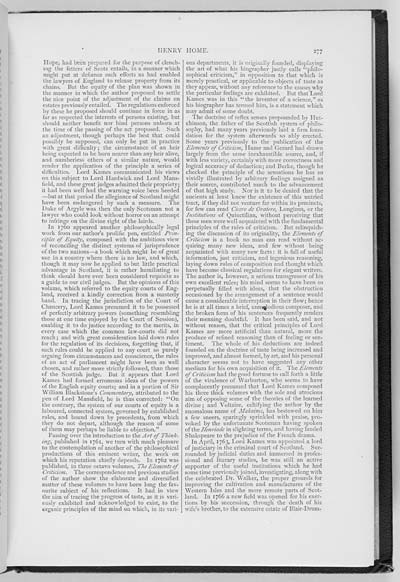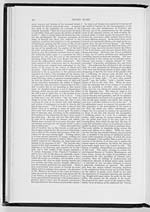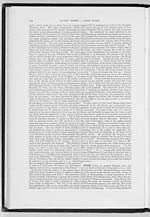277
Hope, had been prepared for the purpose of clench-
ing the fetters of Scots entails, in a manner which
might put at defiance such efforts as had enabled
the lawyers of England to release property from its
chains. But the equity of the plan was shown in
the manner in which the author proposed to settle
the nice point of the adjustment of the claims on
estates previously entailed. The regulations enforced
by these he proposed should continue in force in as
far as respected the interests of persons existing, but
should neither benefit nor bind persons unborn at
the time of the passing of the act proposed. Such
an adjustment, though perhaps the best that could
possibly be supposed, can only be put in practice
with great difficulty; the circumstance of an heir
being expected to be born nearer than any heir alive,
and numberless others of a similar nature, would
render the application of the principle a series of
difficulties. Lord Kames communicated his views
on this subject to Lord Hardwick and Lord Mans-
field, and these great judges admitted their propriety;
it had been well had the warning voice been heeded
�but at that period the allegiance of Scotland might
have been endangered by such a measure. The
Duke of Argyle was then the only Scotsman not a
lawyer who could look without horror on an attempt
to infringe on the divine right of the lairds.
In 1760 appeared another philosophically legal
work from our author's prolific pen, entitled Prin-
ciples of Equity, composed with the ambitious view
of reconciling the distinct systems of jurisprudence
of the two nations�a book which might be of great
use in a country where there is no law, and which,
though it may now be applied to but little practical
advantage in Scotland, it is rather humiliating to
think should have ever been considered requisite as
a guide to our civil judges. But the opinions of this
volume, which referred to the equity courts of Eng-
land, received a kindly correction from a masterly
hand. In tracing the jurisdiction of the Court of
Chancery, Lord Kames presumed it to be possessed
of perfectly arbitrary powers (something resembling
those at one time enjoyed by the Court of Session),
enabling it to do justice according to the merits, in
every case which the common law-courts did not
reach; and with great consideration laid down rules
for the regulation of its decisions, forgetting that, if
such rules could be applied to any court so purely
arguing from circumstances and conscience, the rules
of an act of parliament might have been as well
chosen, and rather more strictly followed, than those
of the Scottish judge. But it appears that Lord
Kames had formed erroneous ideas of the powers
of the English equity courts; and in a portion of Sir
William Blackstone's Commentary, attributed to the
pen of Lord Mansfield, he is thus corrected: "On
the contrary, the system of our courts of equity is a
laboured, connected system, governed by established
rules, and bound down by precedents, from which
they do not depart, although the reason of some
of them may perhaps be liable to objection."
Passing over the introduction to the Art of Think-
ing, published in 1761, we turn with much pleasure
to the contemplation of another of the philosophical
productions of this eminent writer, the work on
which his reputation chiefly depends. In 1762 was
published, in three octavo volumes, The Elements of
Criticism. The correspondence and previous studies
of the author show the elaborate and diversified
matter of these volumes to have been long the fav-
ourite subject of his reflections. It had in view
the aim of tracing the progress of taste, as it is vari-
ously exhibited and acknowledged to exist, to the
organic principles of the mind on which, in its vari-
ous departments, it is originally founded, displaying
the art of what his biographer justly calls "philo-
sophical criticism," in opposition to that which is
merely practical, or applicable to objects of taste as
they appear, without any reference to the causes why
the particular feelings are exhibited. But that Lord
Kames was in this "the inventor of a science," as
his biographer has termed him, is a statement which
may admit of some doubt.
The doctrine of reflex senses propounded by Hut-
chinson, the father of the Scottish system of philo-
sophy, had many years previously laid a firm foun-
dation for the system afterwards so ably erected.
Some years previously to the publication of the
Elements of Criticism, Hume and Gerard had drawn
largely from the same inexhaustible source, and, if
with less variety, certainly with more correctness and
logical accuracy of deduction; and Burke, though he
checked the principle of the sensations he has so
vividly illustrated by arbitrary feelings assigned as
their source, contributed much to the advancement
of that high study. Nor is it to be denied that the
ancients at least knew the existence of this untried
tract, if they did not venture far within its precincts,
for few can read Cicero de Oratore, Longinus, or the
Institutions of Quinctilian, without perceiving that
these men were well acquainted with the fundamental
principles of the rules of criticism. But relinquish-
ing the discussion of its originality, the Elements of
Criticism is a book no man can read without ac-
quiring many new ideas, and few without being
acquainted with many new facts : it is full of useful
information, just criticism, and ingenious reasoning,
laying down rules of composition and thought which
have become classical regulations for elegant writers.
The author is, however, a serious transgressor of his
own excellent rules; his mind seems to have been so
perpetually filled with ideas, that the obstruction
occasioned by the arrangement of a sentence would
cause a considerable interruption in their flow; hence
he is at all times a brief, unmelodious composer, and
the broken form of his sentences frequently renders
their meaning doubtful. It has been said, and not
without reason, that the critical principles of Lord
Kames are more artificial than natural, more the
produce of refined reasoning than of feeling or sen-
timent. The whole of his deductions are indeed
founded on the doctrine of taste being increased and
improved, and almost formed, by art, and his personal
character seems not to have suggested any other
medium for his own acquisition of it. The Elements
of Criticism had the good fortune to call forth a little
of the virulence of Warburton, who seems to have
complacently presumed that Lord Kames composed
his three thick volumes with the sole and atrocious
aim of opposing some of the theories of the learned
divine; and Voltaire, celtifying the author by the
anomalous name of Makaims, has bestowed on him
a few sneers, sparingly sprinkled with praise, pro-
voked by the unfortunate Scotsman having spoken
of the Henriade in slighting terms, and having lauded
Shakspeare to the prejudice of the French drama.
In April, 1763, Lord Kames was appointed a lord
of justiciary in the criminal court of Scotland. Sur-
rounded by judicial duties and immersed in profes-
sional and literary studies, he was still an active
supporter of the useful institutions which he had
some time previously joined, investigating, along with
the celebrated Dr. Walker, the proper grounds for
improving the cultivation and manufactures of the
Western Isles and the more remote parts of Scot-
land. In 1766 a new field was opened for his exer-
tions by his succession, through the death of his
wife's brother, to the extensive estate of Blair-Drum-

![]() Universal Viewer |
Universal Viewer | ![]() Mirador |
Large image | Transcription
Mirador |
Large image | Transcription
![]()

